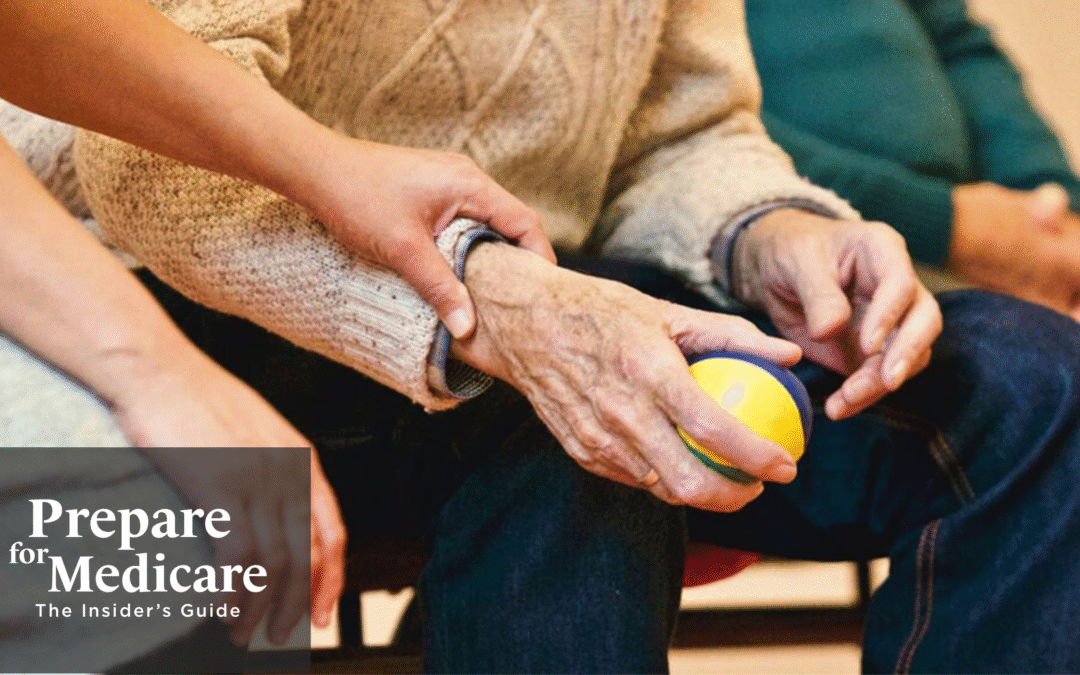If you’re caring for a parent with Alzheimer’s or another chronic illness, you’ve probably wondered:
Will Medicare help pay for in-home care?It’s one of the most common — and most misunderstood — questions I hear. The truth is, Medicare can help with some medical home care services, but not with daily personal care, cleaning, or full-time assistance.
Let’s break down what’s actually covered, what isn’t, and how to qualify.
What Medicare Covers for Home Health Care
Medicare covers skilled, part-time medical care — not 24/7 home support. The services must be medically necessary and ordered by a doctor.
Covered home health services may include:
- Skilled nursing care on a part-time basis
- Physical, occupational, or speech therapy
- Medical social services
- Injectable osteoporosis drugs for qualifying patients
- Part-time home health aide services (but only if you’re also getting skilled care)
- Certain durable medical equipment like walkers, wheelchairs, or wound supplies
To receive these benefits, your care must be coordinated through a Medicare-certified home health agency. You can search for one using the official Medicare Home Health Compare tool.
It’s also smart to review
Medicare.gov and
CMS.gov
for detailed eligibility requirements.
What Medicare Does Not Cover
This is where many families get surprised. Medicare doesn’t pay for custodial or personal care — even if it’s needed every day.
Not covered:
- 24-hour in-home care
- Meal delivery or cooking
- Housekeeping, shopping, or laundry
- Personal care (like bathing or dressing) unless part of medical treatment
If your loved one needs daily supervision or personal assistance, you’ll likely need to explore
private care, respite services, or adult day care options. You can find helpful guidance here:
Who Qualifies for Medicare Home Health Care
To qualify, your doctor must certify that:
- You’re homebound (can’t leave home easily or require special transportation)
- The care is medically necessary and requires a skilled provider
- It’s safe to receive care at home
- The services are part-time or intermittent — not full-time
- There’s a reasonable chance of improvement
You must also have Medicare Part A and/or Part B. Your physician will coordinate care through a
Medicare-approved home health agency, which manages nurse visits and equipment delivery.
For support in understanding your benefits, check out
Medicare Help Lines.
What Does “Homebound” Mean?
Medicare’s definition of “homebound” doesn’t mean you’re trapped indoors. It means
leaving home requires considerable effort or assistance, such as:
- Using a wheelchair, walker, cane, or crutches
- Relying on another person for transportation or mobility
- Following a doctor’s recommendation not to leave home frequently
You can still attend short trips, like doctor’s appointments, religious services, or family events — and remain considered “homebound.”
This flexibility helps many beneficiaries continue participating in life while receiving care.
Out-of-Pocket Costs to Expect
Medicare covers the full cost of home health services that meet the criteria. You pay nothing for approved visits.
For medical equipment under Part B, you’ll typically owe:
- Your annual Part B deductible
- Then, 20% coinsurance for the Medicare-approved amount
Always ask your provider for a written estimate showing:
- Which services Medicare covers
- What may not be covered
- Whether any balance billing applies
If another insurer (like retiree coverage or Medicaid) helps, your total costs may differ. Always verify before care begins.
Additional Resources
- Review the official Medicare and Home Health Care booklet for full details.
- The Eldercare Directory offers links to federal, state, and community programs, including respite care and companion services.
- Faith-based or local nonprofit organizations often offer low-cost volunteer support for homebound individuals.
You can also stay informed about yearly
Medicare Changes
so you know when rules or coverage may shift.
Final Thoughts
If your loved one needs skilled, part-time medical care at home, Medicare can help cover those costs.
But if you’re looking for around-the-clock personal support or supervision, Medicare won’t cover it. That’s where private caregivers, adult day programs, or community assistance come in.
The bottom line: Medicare helps with medical needs — not daily living tasks. Knowing that distinction early can save you time, stress, and unexpected bills.
Does Medicare pay for 24-hour in-home care?
No. Medicare only covers part-time or intermittent skilled medical care ordered by a doctor. It does not pay for round-the-clock supervision, housekeeping, meal prep, or custodial care.
What home health services does Medicare cover?
When medically necessary and coordinated by a Medicare-certified home health agency, Medicare may cover:
- Part-time skilled nursing care
- Physical, occupational, or speech therapy
- Medical social services
- Limited home health aide services (only if you’re also getting skilled care)
- Certain durable medical equipment (walkers, wound supplies, etc.)
Who qualifies as “homebound” under Medicare?
You’re considered homebound if leaving home requires significant effort or assistance — for example:
- Using a wheelchair, walker, or cane
- Relying on another person for transportation
- Following a doctor’s recommendation not to leave home frequently
You can still leave occasionally for short trips like doctor’s visits, family events, or religious services and remain considered “homebound.”
What out-of-pocket costs should I expect?
You’ll typically pay $0 for covered home health visits.
For equipment covered under Part B:
- You must meet your Part B deductible
- Then pay 20% coinsurance on the Medicare-approved amount
Always ask for a written estimate showing what’s covered, what isn’t, and whether any balance billing applies.




